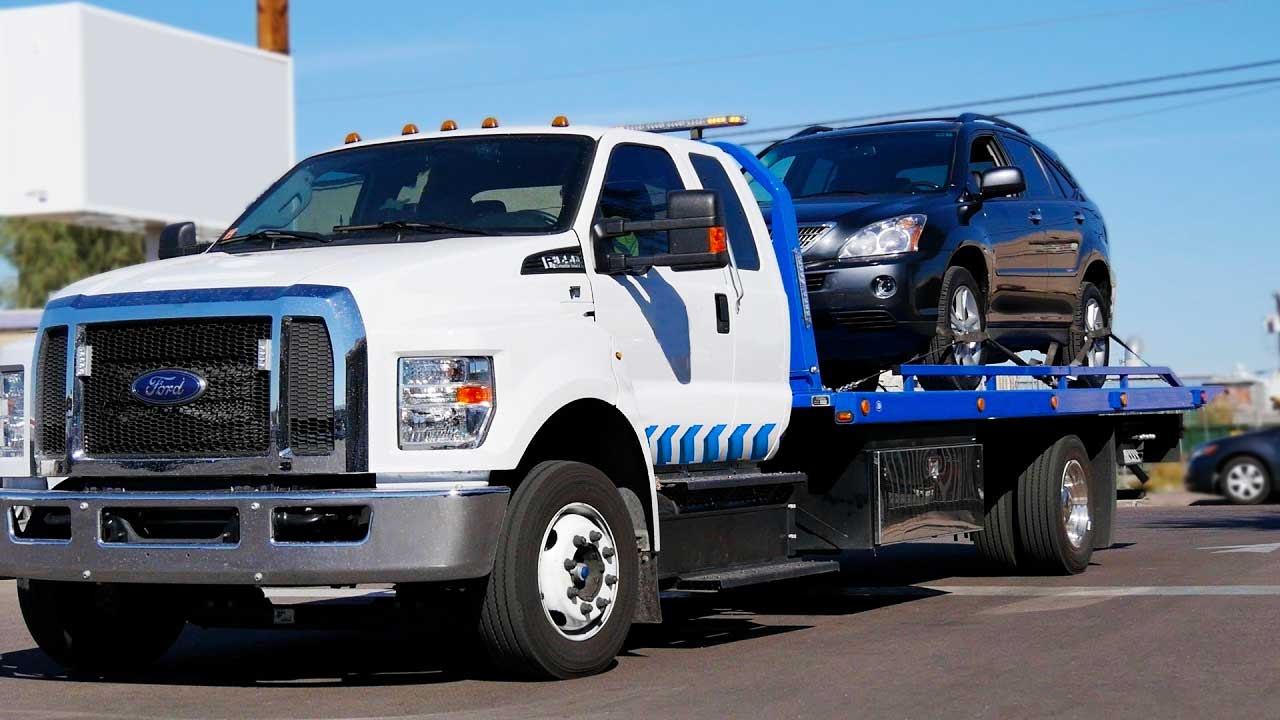Top 10 Tips for Starting a Tow Truck Business
Discover the essential steps to launch a successful tow truck business with our top 10 expert tips. Start towing towards success today!

Starting a tow truck business can be a profitable venture for those who are well-prepared and informed. With the towing industry showing consistent demand, the right approach can pave the way to success. Whether you’re drawn to the idea of providing essential services to stranded motorists or you see an opportunity in vehicle repossession and transport, these top 10 expert tips will guide you through the essential steps to launch a successful tow truck business. Start towing towards success today!
Starting a Tow Truck Business: Expert Tips for Success
Entering the tow truck industry involves more than just purchasing a tow truck and finding clients. It’s about creating a solid foundation that ensures your business grows sustainably while navigating the challenges unique to towing. From understanding your local market to securing the right insurance, the journey entails meticulous planning and execution. Let’s dive into these top tips that every aspiring tow truck business owner should know.
List of Top Choices
- Develop a Comprehensive Business Plan
- Research the Industry and Market
- Obtain Necessary Licenses and Permits
- Secure Adequate Insurance Coverage
- Acquire the Right Equipment (Tow Trucks)
- Determine Your Target Market and Service Offerings
- Establish Pricing and Financial Projections
- Develop a Marketing and Advertising Plan
- Set Up Operations and Dispatch System
- Build a Network of Partnerships
Develop a Comprehensive Business Plan
- Outline of business goals and target market
- Competitive analysis and marketing strategies
- Operational plans
A solid business plan acts as the foundation of your tow truck business. It’s not just a document for potential lenders, but a roadmap for your venture's journey. Start by outlining your primary goals and identifying your target markets, such as roadside assistance, impound services, or heavy-duty towing. A comprehensive competitive analysis along with marketing strategies will differentiate your services in the crowded marketplace. Operational plans detail the day-to-day running of your business, while financial projections ensure you have a clear view on startup costs, ongoing expenses, and potential revenue. This plan will guide you through the ups and downs of establishing and running your business successfully.
Research the Industry and Market

- Deep understanding of the towing industry
- Analysis of local demand and competitors
- Determining needed towing services types
Before launching your tow truck business, take the time to really dive into the industry's intricacies. Understanding local needs and the competitive landscape in your area will direct your services. Perhaps there’s a high demand for light-duty towing but a saturation of providers, or maybe heavy-duty towing services are scarce. Researching these aspects helps you carve out a niche for your business that can set you apart. By knowing exactly what your community needs, your business can tailor its services directly to fill those gaps, thus increasing your chances of success.
Obtain Necessary Licenses and Permits
- Legal business registration
- Tow truck operator licenses
- Permits for special operations (e.g., impound lots)
Given the regulated nature of the towing industry, ensuring your business is compliant with all local, state, and federal regulations is critical. This step often starts with registering your business legally and obtaining a general business license. Specific tow truck operator licenses may also be required, along with permits for operating impound lots or providing services in certain municipalities. Each jurisdiction has its own set of requirements, making it important to research thoroughly to prevent any legal issues. Compliance not only protects your business but also builds credibility with clients.
Secure Adequate Insurance Coverage
- Commercial auto insurance for tow trucks
- General liability and "on-hook" insurance
- Workers' compensation for employees
No towing business can afford to skip on comprehensive insurance. The nature of towing operations presents unique risks, making adequate insurance coverage paramount for protecting your assets, employees, and the vehicles you tow. Commercial auto insurance is a given, covering accidents or damage to your fleet. General liability insurance shields your business from third-party injury claims, while "on-hook" insurance is specific to towing, covering damage to clients' vehicles under your care. If employing others, workers' compensation is legally required in most places, providing benefits to employees injured on the job. Together, these insurance plans form a safety net around the financial health of your business.
Acquire the Right Equipment (Tow Trucks)
![]()
- Investment in reliable, well-maintained vehicles
- Selection based on service offerings (e.g., flatbed for delicate vehicles)
- Consideration for towing capacity, fuel efficiency, and maintenance
Your choice of tow trucks and equipment will significantly impact the efficiency and quality of your services. Depending on your target market and service offerings, different types of tow trucks and accessories may be required. For instance, flatbed tow trucks are indispensable for transporting damaged or high-value vehicles, while traditional hook-and-chain trucks might suffice for more rudimentary towing tasks. Prioritize reliability and maintenance when selecting vehicles to avoid costly downtimes. Additionally, consider the towing capacity and fuel efficiency of each truck, as these will influence operational costs and pricing strategies. Having the right equipment not only enhances service delivery but also optimizes profitability.
Determine Your Target Market and Service Offerings
- Identifying ideal customer segments
- Defining specific towing services
- Customizing offerings to meet market demands
Understanding who your customers are and what they need is central to your business's success. Towing services can appeal to a broad audience, from individual car owners to businesses like auto repair shops or insurance companies. Identifying the most profitable and accessible segments helps tailor your services effectively. This could mean specializing in roadside assistance, accident recovery, or even non-consensual towing for law enforcement. By aligning your services with the needs of your target market, you’re more likely to build lasting relationships and secure a steady stream of clients.
Establish Pricing and Financial Projections
- Developing a clear pricing structure
- Considering cost factors and competitive pricing
- Creating detailed financial forecasts
Setting competitive yet profitable prices is a challenging but necessary step. Analyze your direct costs, such as fuel, maintenance, and employee wages, along with indirect costs like insurance and license fees. Balancing these expenses against market rates helps in formulating a pricing structure that appeals to your target customers while ensuring profitability. Financial forecasting, including an analysis of startup costs, operational expenses, and expected revenue, is crucial. This exercise not only aids in financial planning but also in attracting potential investors or securing loans by demonstrating the business’s growth potential.
Develop a Marketing and Advertising Plan

- Mix of online and offline marketing strategies
- Professional website and social media presence
- Local partnerships and advertising
In today's digital age, a balanced marketing strategy that includes both online and offline efforts is key. A professional website serves as the hub of your digital presence, while active social media profiles help maintain engagement and attract new customers. However, don’t underestimate the value of offline methods. Building partnerships with related businesses such as auto repair shops and insurance companies can provide valuable referrals. Additionally, consider local advertising strategies, such as billboard or radio ads, to increase your visibility within the community. A well-rounded marketing plan will ensure a wider reach and stronger brand recognition.
Set Up Operations and Dispatch System
- Establishing a physical or home-based location
- Implementing an efficient dispatch system
- Outlining staffing needs and management
Operational efficiency is crucial for any towing business, starting with a reliable dispatch system that ensures quick and effective service delivery. Whether operating from a commercial location or a home office, having a clear operational base is essential. This infrastructure supports your dispatching system, which can range from simple manual methods to sophisticated software, to manage service calls effortlessly. Additionally, identifying your initial and future staffing needs, including drivers, dispatchers, and possibly mechanics, will help in creating a streamlined operation that can handle the demands of the business.
Build a Network of Partnerships
- Creating mutually beneficial collaborations
- Securing referrals from local businesses
- Engaging with community and professional organizations
Building a network of strategic partnerships is invaluable for sustained growth. Collaborating with local businesses, such as auto repair shops, car dealerships, and insurance companies, can significantly increase your referral business, creating a steady stream of new clients. Additionally, engaging with community organizations and professional groups can enhance your brand's reputation and credibility. These partnerships not only provide direct business benefits but also offer opportunities for community engagement and support, further establishing your business as a trusted local service provider.
Launching a tow truck business is undoubtedly challenging, but with the right approach, it can also be incredibly rewarding. By diligently following these top 10 tips, from creating a detailed business plan to building a network of partnerships, you're setting up your tow truck business for success. Remember, success in the towing industry is as much about the quality of service you provide as it is about strategic planning and execution. Now is the time to start towing towards success, equipped with the knowledge and strategies to thrive.
What's Your Reaction?































































